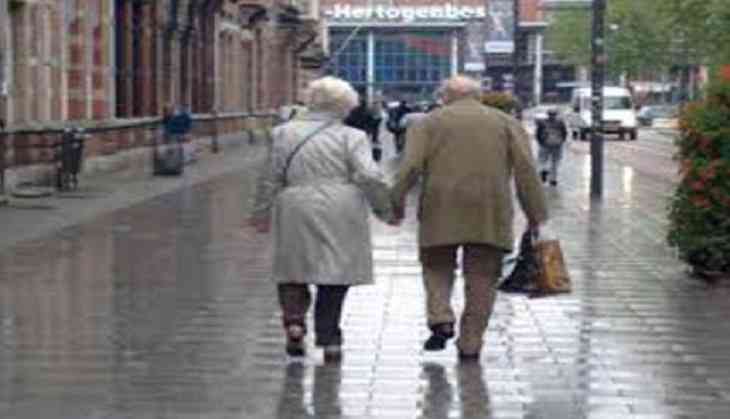
Beware! If your grandma's walking pace has suddenly slowed down more than usual, then you may have to rush her to the doctor as it could be an early indicator of dementia, warns a study.
The results suggested that participants, who walked slower over time, but those who slowed by 0.1 seconds more per year than their peers were 47 percent more likely to struggle cognitively.
Researchers from the University of Pittsburgh in Pennsylvania, US found that people, who developed slow walking, showed shrinkage of their right hippocampus.
This area of the brain, which is similar in shape to a seahorse, is primarily associated with memory and the ability to maintain posture, in relation to the physical space around you when at rest and during motion.
The findings suggested that dementia could be treated earlier if doctors regularly measure the walking speeds of older patients and watch for changes over time.
"Prevention and early treatment may hold the key to reducing the global burden of dementia, but the current screening approaches are too invasive and costly to be widely used," said a researcher Andrea Rosso.
The team looked at 175 people, aged 70 to 79, who had good health and normal mental function, at the start, for 14 years.
The participants were regularly assessments over the years, involving the participants walking an 18-foot stretch of hallway while they were timed.
The results revealed that the right hippocampus was the only area of the brain found to shrink in relation to both gait slowing and cognitive impairment.
The finding held even when the researchers took into account slowing caused by muscle weakness, knee pain and diseases, including diabetes, heart disease and hypertension.
"What we're finding is that physicians also should consider that there may be a brain pathology driving the slowing gait and refer the patient for a cognitive evaluation," Rosso noted.
The results appeared in journal of Neurology.
-ANI


